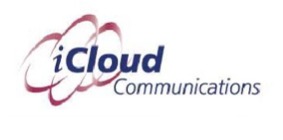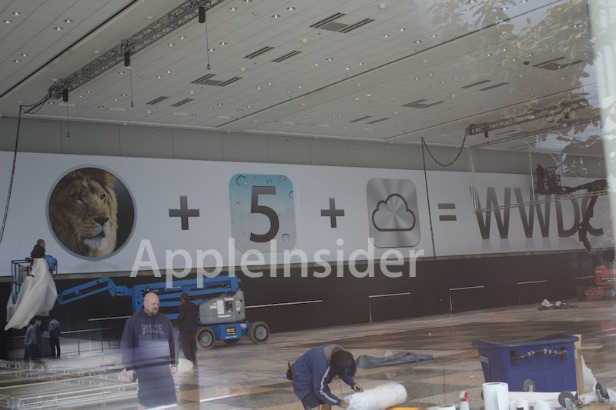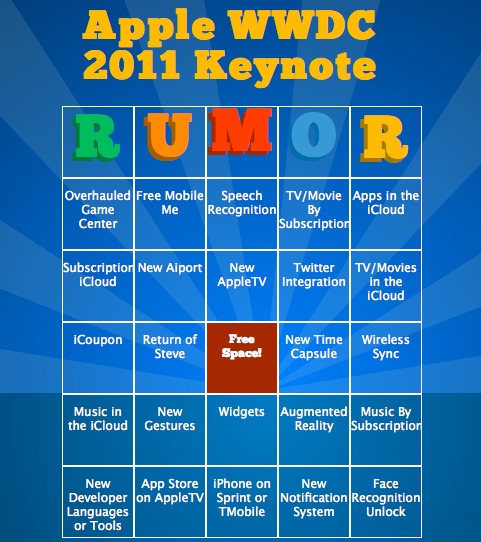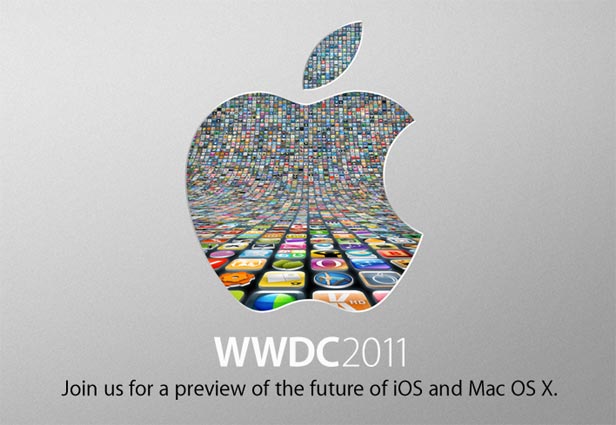Apple finally kicked off its much-anticipated Worldwide Developers Conference, and introduced the equally anticipated Mac OS X Lion and iOS 5 operating systems, as well as the company’s cloud offering – iCloud. As you might imagine, there are a lot of details to take in around these three offerings , so we’ve compiled a whole bunch of them into quick, bite-sized nuggets for easy consumption.
Are you impressed by Apple’s forthcoming offerings? Let us know in the comments.
Mac OS X Lion

1. Mac OS X Lion is the 8th major release of the OS.
2. It will be available in July.
3. It has over 250 new features (not all of which were detailed)
4. It comes with 3,000 new developer APIs.
5. It will be only available by download through the Mac App Store.
6. It features Multi-Touch gestures and fluid animations that let you interact directly with content on the screen
7. New gestures include momentum scrolling, tapping or pinching your fingers to zoom in on a web page or image, and swiping left or right to turn a page or switch between full screen apps.
8. All Mac notebooks ship with Multi-Touch trackpads and desktop Macs can use Apple’s Magic Trackpad.
9. Mac OS X Lion features full screen apps to take advantage of the entire display
10. The Mission Control feature combines Exposé, full screen apps, Dashboard and Spaces.
11. You can swipe to get your desktop to zoom out to display your open windows grouped by app, thumbnails of your full screen apps and your Dashboard.
12. It comes with the Mac App Store built in.
13. The Launchpad feature makes it easier to find and launch apps, and with a single multi-touch gesture, all your apps are displayed in a full screen layout.
14. You can organize apps into any order or into folders and swipe through unlimited pages of apps.
15. There’s a redesigned Mail app with widescreen layout.
16. The Mail app has a new conversations feature that groups related messages into a scrollable timeline.
17. The Mail app has a new search feature that lets you refine searches and suggests matches by person, subject, and label as you type.
18. The mail app also includes support for Microsoft Exchange 2010.
19. The OS includes Resume, which lets you bring apps back to how you left them when you restart or relaunch the app.
20. Apps will save automatically as you work.
21. Versions records the history of your documents as you create them, and gives you a way to browse, revert, and copy/paste from previous versions.
22. An AirDrop feature lets you find nearby Macs and set up P2P wireless connections.
23. Mac OS X Lion will be available as an upgrade to Snow Leopard from the Mac App Store for $29.99.
24. The upgrade will be at about 4GB (the size of an HD movie from the iTunes Store).
iOS 5

25. Apple calls iOS 5 “the most extensive software update ever for iPhone, iPad, and iPod Touch.”
26. iOS 5 has over 200 new features.
27. iOS 5 is a free update.
28. iOS 5 gives devices access to iCloud (see below)
29. Apple has not detailed all 200 features, but highlights a few as “key features,” which include: notification center, iMessage, Newsstand, Reminders, Twitter, Camera, Photos, Safari, and PC Free.
30. Notification Center aggregates all of your notifications, and can be accessed simply by swiping down from the top of the screen.
31. It shows stocks and weather at the top of the screen.
32. It will display a little pop up at the top to let you know about it while you’re watching a video or playing a game, then it will go away.
33. The “Newsstand” feature automatically downloads (in the background) the latest issues of magazine and newspaper apps that you’re subscribed to, and keeps the available for online or offline access from one place.
34. iOS 5 comes with built-in Twitter integration, where you save your Twitter info, which can easily be shared with any other app. This will make it easy to simply Tweet just about anything from the device. – Twitter can be used to automatically update contacts (if they’re on Twitter).
35. Safari gets a button called “Safari Reader,” which converts articles into just text, eliminating ads and other clutter on the page. Some publishers may take issue with this.
36. It also lets you email the content to people.
37. Safari also has a reading list feature that lets you save stories to read later (on multiple devices).
38. Safari gets tabbed browsing.
39. The “Reminders” feature lets you keep lists and assign reminders to specific dates and locations, so you can get reminded of something not only by time, but also based on when you enter or exit a specific location.
40. There is a camera icon on the lock screen providing quicker access to the camera app.
41. You can use the volume up button to take pictures.
42. You can pinch to zoom in the app and edit photos directly on the phone.
43. Mail comes with rich-text formatting, indentation control, draggable addresses, and the ability to mark items as unread, search entire messages, and S/MIME.
44. There is a new dictionary feature that lets you look up words from any app by tapping on the word and getting a definition.
45. There’s a new keyboard feature that lets you split the keyboard apart into two pieces.
46. The “PC-Free” feature means you’re no longer required to connect to a PC. You can set up and activate the box right out of the box, and software updates don’t require plugging in.
47. Updates are “delta,” meaning it only updates what needs to be updated, as opposed to the whole thing, which should save time and data.
48. The Game Center will show achievement points.
49. It will also show scores of freinds’ friends
50. The Game Center will also show friend and game recommendations.
51. You will be able to purchase and download games right from the Game Center.
52. Turn-based games can be played from the OS.
53. Messaging will work among any iOS users. In other words, whether you’re using an iPhone, iPad, or iPod, you’ll be able to send and receive messages to other users.
54. That applies to text, pictures, and video, and includes Group messaging.
55. You can also switch devices yourself in the middle of conversations.
56. The SDK is out for developers.
57. iOS 5 will ship to customers in the fall.
58. iOS 5 will support iPhone 3GS and iPhone 4, iPad, iPad 2, and IPod Touch (3rd and 4th gen)
59. You can give Apple your email address here to get notified when iOS 5 is ready for you to download.
iCloud

60. iCloud ships in the fall.
61. There is a beta available now for iOS and Mac Developer Program members.
62. iCloud lets you store content in the cloud and access it on all your devices.
63. iCloud works with iPhone, iPad, iPod Touch, Mac, and PC.
64. It’s free with the upcoming iOS 5.
65. iCloud is “seamlessly” integrated into apps.
66. MobileMe has been discontinued as a service, and the Contacts, Calendar and Mail services have been reworked to work with iCloud.
67. Users can share calendars with friends and family.
68. Users can get an @me.com push mail account (which has no ads).
69. inbox and mailboxes are kept up-to-date across devices.
70. App Store and iBookstore download purchased iOS apps and books to all your devices (not just the one they were purchased on).
71. The App Store and iBooktore also let you see your purchase history, and download any apps/books to different devices by hitting the “iCloud” icon.
72. You can replace your stuff on a new device (up to ten devices) free of charge, using your Apple ID.
73. iCloud Storage stores all documents created using iCloud Storage APIs, and automatically pushes them to all your devices.
74. When you change a document on any device, iCloud automatically pushes the changes to all devices.
75. Apple Pages, Numbers, and Keynote apps take advantage of iCloud Storage.
76. iCloud’s Photo Stream automatically uploads photos you take or import on any device and pushes them to all devices.

77. Photo Stream is built into photo apps on all iOS devices and saved to the Pictures folder on a PC.
78. To save space, the last 1,000 photos are stored on each device so they can be viewed or moved to an album to save forever.
79. Macs and PCs will store all photos from the Photo Stream.
80. iCloud will store each photo in the cloud for 30 days.
81. Users get up to 5GB of free storage for mail, documents, and backup.
82. Storage for music, apps, and books purchased from Apple doesn’t count toward the storage limit.
83. Storage required by Photo Stream doesn’t count either.
84. Users can buy more storage – details on this will be announced when iCloud ships in the fall.
85. iTunes lets you download previously purchased iTunes music to all iOS devices at no additional charge.
86. Music not purchased from iTunes can be synced using iTunes Match.


87. iTunes Match upgrades songs to 256 kbps AAC DRM-free versions if it can match it to songs in its library.
88. If it can’t match it, it will upload it.
89. iTunes Match will be available in the fall for $24.99 a year (US only).

90. iTunes in the Cloud is available now in beta without iTunes Match.
91. iTunes in the Cloud will support all iPhones that iOS 5 supports.
92. Apple has invested over $500 million in one data center in Maiden, NC to support demand for free iCloud services.
93. You can give Apple your email address here to get notified when iCloud is available.
Random Apple stats (According to Apple)
94. Over 54 million Mac users around the world (and growing)
95. The PC market has shrunk 1%, while the Mac has grown 28%
96. Mac has outgrown the industry every quarter for the last five years
97. Mac sales are nearly 3/4 those of notebooks
98. Over 200 million iOS devices sold
99. iOS the “number one mobile operating system” with over 44% of the market
100. Over 25 million iPads sold
101. Over 15 billion songs sold through iTunes
102. 130 million book downloads from the iBookstore
103. There are 90,000 iPad apps
104. Over 14 billion apps downloaded from the App Store
105. Apple has paid over $2.5 billion to developers
106. Over 225 million accounts with credit cards and 1-click purchasing
107. Over 100 billion notifications pushed
108. 1 billion tweets sent per week (relevant considering the new Twitter integration)
109. Nearly 2/3 of all mobile web browsing done through Safari
110. Over 100,000 game and entertainment titles in the App Store
111. 50 million Game Center users (that’s in nine months, and is compared to Xbox live getting 30 million in 8 years)
Other
112. Steve Jobs Appeared at the event, despite his medical leave of absence from the company.
113. His physical appearance has caught the attention of a great deal of commentators – many not incredibly optimistic.
114. After rising ahead of the event, Apple’s stock declined in afternoon trading after Jobs’ speech ended.
Do you think Apple’s new offerings will make a significant impact? Tell us what you think.
















